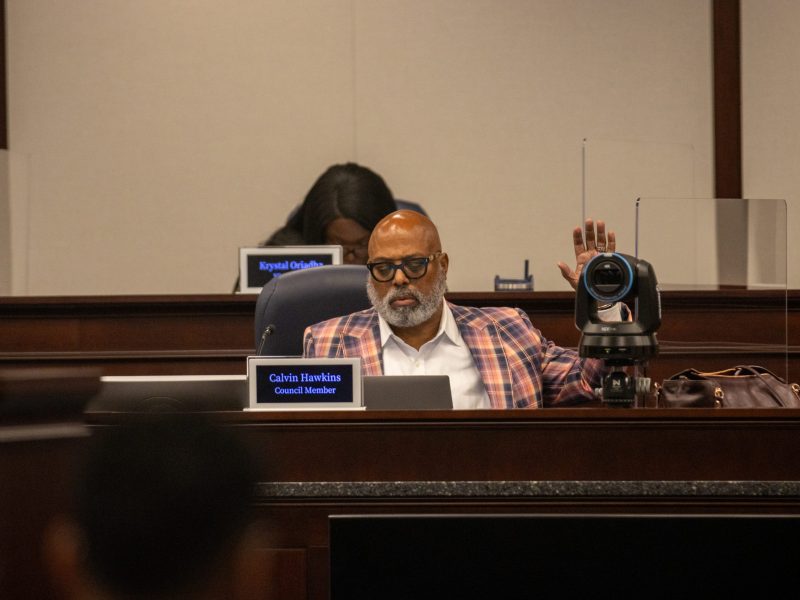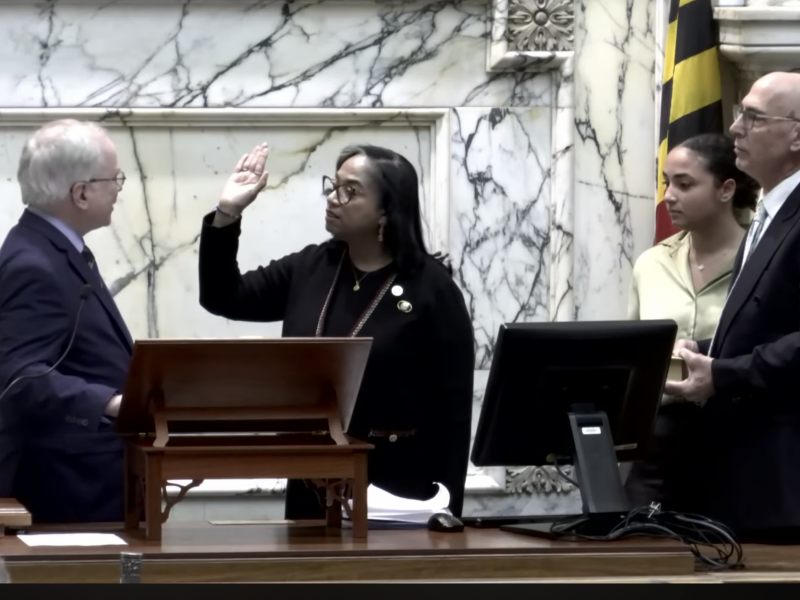Members of the Prince George’s County Council proposed a bill that would require project labor agreements to be added to all county-funded construction projects over $35 million in an effort to support trade workers in the county.
The proposed bill, which was introduced on Oct. 17, follows a pilot project labor agreement program the council implemented in April. The main bill focused on targeting high unemployment rates in the county.
A project labor agreement is a type of collective bargaining agreement that establishes the terms and conditions of a construction project before construction is started. They can allow for clearer terms regarding wages and workers’ rights and benefits on a specific project, according to the U.S. Department of Labor.
Council member Edward Burroughs, who proposed and sponsored January and October project labor agreement bills, hopes the new bill will prioritize Prince George’s County residents by pulling from in-county local construction workers.
“It is absolutely imperative that we ensure that the money that we spend on these construction projects not only builds a project but we uplift our residents in the process,” Burroughs told The Diamondback last week. “It’s important that we leverage every tax dollar that we’re spending on these expensive projects to uplift working people in Prince George’s County.”
[College Park City Council increases home ownership grants for first responders]
Burroughs said he is following in the footsteps of President Joe Biden, who signed an executive order in February 2022 requiring project labor agreements for federally funded
construction projects that cost $35 million or more.
“I’m happy to champion the bill here at the local level,” Burroughs said.
When Burroughs first introduced the October bill, he set the minimum cost to implement project labor agreements for county-funded construction projects at $10 million. However, after negotiation at the request of Prince George’s County Executive Angela Alsobrooks, the minimum cost of construction has been raised to $35 million.
Roxana Mejia — the political and community liaison for the International Union of Painters and Allied Trades District Council 51 — said that although she preferred the $10 million minimum because it would allow for more protection and opportunity for Prince George’s County workers.
“I think it’s a great idea,” Mejia said. “It will provide more opportunities to not only Prince George’s residents, but residents that have struggled getting in our industry, or getting decent wages.”
Mejia said requiring project labor agreements provides more economic sustainability for the county in general. Project labor agreements support local businesses by providing sustainable wages that can be spent on goods and services in the community, which benefits residents, Mejia said.
Victoria Leonard, the political and legislative director for the Baltimore-Washington Laborers District Council, agrees the bill is beneficial.
[Fiery debate pauses bill to eliminate tipped minimum wages in Prince George’s County]
“In addition to addressing the issue of wage theft, another benefit of project labor agreements is you’re creating this pipeline of quality union jobs that come with a pension and health care,” Leonard said. “I hope that this will grow and that will create more quality jobs for residents.”
Because project labor agreements typically establish a standardized wage before a project is started, there is less room for contractors to misclassify workers or to change the wages of workers during the project, Leonard said. This leads to less wage theft, she added.
Burroughs said there are some business interests who are not happy about the bill because they do not believe the government should legislate project labor agreements. Regardless of business interests, Burroughs wants to make sure the government is allocating their money beneficially.
“We have a responsibility to leverage our money that we’re already going to spend to uplift our residents, and that’s the goal of this,” Burroughs said.
The Prince George’s County Council will hold a public hearing and vote on the bill on Nov. 14.



